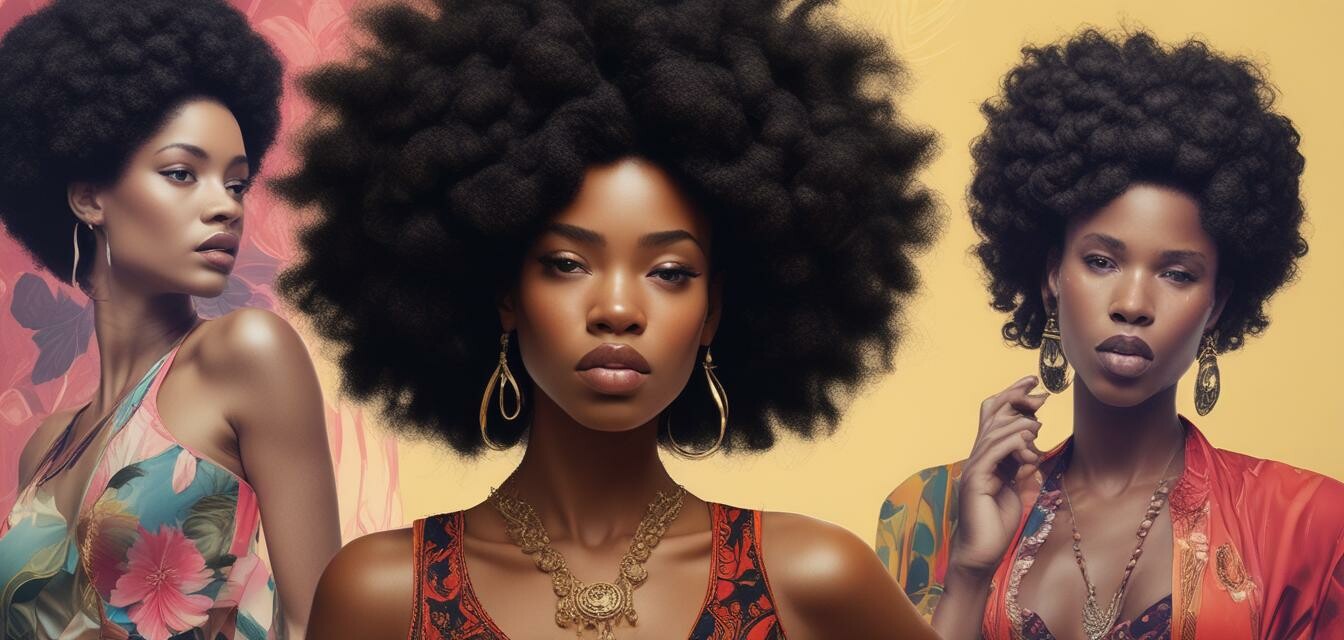
Legacy of Black Hair in Fashion: A Historical Perspective
Key Takeaways
- Black hair has a rich history intertwined with cultural identity and self-expression.
- Different styles have played significant roles in various fashion trends over centuries.
- The evolution of Black hair corresponds with social movements, showcasing resilience and creativity.
- Modern fashion continues to be influenced by traditional Black hairstyles.
Hair has always been a vital part of personal identity and cultural representation. For the Black community, hair not only conveys aesthetic beauty but also tells a powerful story of resilience, creativity, and heritage. In this article, we will explore the legacy of Black hair in fashion and how it has shaped and inspired trends throughout different periods in history.
A journey through history
The history of Black hair in fashion is rich and diverse, reflecting the artistic expression of generations. From ancient civilizations to modern-day trends, Black hairstyles have remained both a symbol of beauty and a form of political statement.
Ancient roots
In ancient African cultures, hairstyles conveyed significant information about social status, marital status, and age. Elaborate hairstyles were not only forms of artistic expression but also demonstrated the intricate nature of cultural identity. For instance:
| Culture | Hairstyle | Significance |
|---|---|---|
| Ancient Egypt | Elaborate braids and wigs | Signified power and wealth |
| West African Tribes | Intricate patterns | Indicated tribal affiliation and status |
| Maasai | Hair adorned with ornaments | Symbol of warrior status and community pride |
The transatlantic slave trade and its effects
During the transatlantic slave trade, Black hair became a point of contention. Enslaved individuals were often forced to conform to European beauty standards, leading to the devaluation of natural Black hairstyles. However, even in the face of oppression, various styles emerged as forms of resilience:
- The cornrow, a practical and beautiful design that kept hair neat while serving cultural significance.
- The afro, which later emerged as a powerful statement of pride during the civil rights movement.
- Wigs and headwraps that allowed for both beauty and comfort.
The 20th century: A revolution in Black hair fashion
The 20th century saw a significant shift in the perception and celebration of Black hair. The rise of the Black is Beautiful movement encouraged people to embrace their natural textures.
Iconic hairstyles that shaped trends
Throughout the decades, certain hairstyles became iconic and represented more than just fashion:
| Decade | Hairstyle | Influence |
|---|---|---|
| 1960s | Afro | Symbol of pride and identity |
| 1970s | Box braids | Challenging stereotypes and embracing culture |
| 1980s | Curls and puffs | Celebrating individuality in fashion |
| 2000s | Natural hairstyles | Return to authentic beauty and self-love |
Modern influences
Today, Black hair continues to influence fashion globally. With an increasing number of beauty brands catering to natural textures, there is a significant push toward inclusive beauty standards. In various spheres, from red-carpet events to fashion weeks, Black hairstyles are celebrated for their diversity and creativity.
Key contemporary styles
Some of the prominent styles making waves today include:
- Protective hairstyles like braids and twists that promote hair health.
- Bantu knots and textured styles that showcase creativity.
- The high top fade, representing an homage to earlier decades.
Conclusion
The legacy of Black hair in fashion represents a long-standing narrative of cultural identity, resilience, and self-expression. As we continue to break standards and redefine beauty, it’s vital to remember the history and power behind these styles. Each braid, curl, and twist tells a story that deserves to be celebrated.
Pros
- Promotes cultural pride and identity.
- Offers diverse styling options that cater to different tastes.
- Encourages conversations about beauty standards.
Cons
- May face societal pressures and stereotypes.
- Maintenance for some styles can be time-consuming.
- Not all platforms provide representation for Black hair in fashion.
Further reading
If you want to learn more about beauty trends and how they relate to Black hair, check out our other articles on Buying Guides, or stay updated with the latest in News and Trends.
Visit our sections on Body Care and Skincare for the best beauty products tailored for your needs.